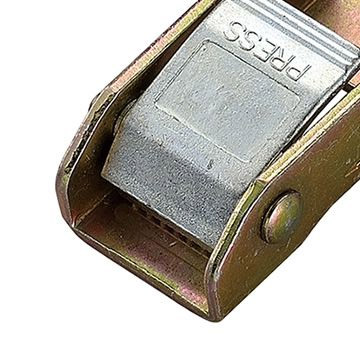full threaded studs
Understanding Full Threaded Studs An Overview
Full threaded studs are essential components found in various applications across multiple industries, including construction, automotive, aerospace, and manufacturing. These fasteners, characterized by their continuous threads along the entire shank, play a vital role in ensuring the stability and reliability of assembled structures and machinery. In this article, we will explore the definition, types, applications, advantages, and considerations to keep in mind when choosing full threaded studs.
What Are Full Threaded Studs?
Full threaded studs are a type of fastener typically designed with a circular cross-section and threads that run the entire length of the stud. Unlike partially threaded studs, which only have threads on one end, full threaded studs provide the ability to engage with nuts or other components on top and bottom, facilitating a more robust connection.
These studs can be made from various materials, including steel, stainless steel, and alloys, making them versatile for different environmental conditions and load requirements. The manufacturing processes often involve cold forging, machining, or a combination of techniques, ensuring strong and durable fasteners.
Types of Full Threaded Studs
1. Standard Full Threaded Studs These are the most common type, featuring uniform threads along their full length. They are used in a variety of applications where strength and reliability are crucial.
2. Heavy-Duty Full Threaded Studs These studs are made from thicker materials or designed with enhanced tensile strength, suitable for high-load applications, such as in heavy machinery or structural components.
3. Shouldered Full Threaded Studs This type incorporates a shoulder or flange near one end, providing additional support and allowing for better load distribution.
4. Custom Full Threaded Studs Manufacturers can produce studs tailored to specific requirements, such as unique thread patterns, lengths, and diameters, to suit particular application needs.
Applications of Full Threaded Studs
Full threaded studs find applications across various sectors, including
- Construction Used to secure structural beams, supports, and other components in buildings and infrastructure. - Automotive Essential in engine assembly and vehicle frame construction, where strong connections are necessary to withstand vibration and dynamic loads. - Aerospace Employed in aircraft assemblies, where lightweight yet durable materials are crucial for safety and performance. - Manufacturing Utilized in machinery and equipment assembly, particularly where high precision and reliability are needed.
Advantages of Full Threaded Studs
full threaded studs

1. Versatility Full threaded studs can be used in different materials and configurations, making them adaptable to various applications.
2. Enhanced Load Distribution The continuous thread allows uniform load distribution, reducing the risk of stress concentrations.
3. Ease of Installation Their design permits straightforward installation and removal, which is beneficial in applications requiring frequent maintenance.
4. Strong Mechanical Connection Full threaded studs offer robust connections, enhancing the integrity and durability of the assembly.
5. Corrosion Resistance When made from stainless steel or treated materials, these studs can resist environmental degradation, making them suitable for outdoor or harsh conditions.
Considerations When Choosing Full Threaded Studs
When selecting full threaded studs for a specific application, several factors should be considered
1. Material Selection The choice of material impacts strength, corrosion resistance, and suitability for the environment in which the stud will be used.
2. Load Requirements Ensure that the selected stud can handle the anticipated load, taking into account both static and dynamic forces.
3. Thread Specifications Consider the type of thread (e.g., coarse or fine), as this affects the stud's grip and the compatibility with nuts or other fasteners.
4. Environment Assess conditions such as temperature, moisture, and exposure to chemicals, which may influence the material choice.
5. Installation Method Understanding how the stud will be installed and whether special tools or techniques are required can help avoid installation issues.
Conclusion
Full threaded studs are indispensable components in countless applications, contributing to the stability and reliability of structures and mechanical systems. By understanding the types, applications, advantages, and selection criteria, engineers and designers can make informed decisions when incorporating these fasteners into their projects. As industries continue to evolve, the demand for reliable fastening solutions like full threaded studs will remain crucial for ensuring safety and performance across various fields.
-
Weatherproof Plastic Expansion Anchors for OutdoorNewsJun.06,2025
-
Sustainability in the Supply Chain: Eco-Friendly TEK Screws ProductionNewsJun.06,2025
-
Load-Bearing Capacity of External Insulation FixingsNewsJun.06,2025
-
Double Head Bolts: Enhancing Efficiency in Industrial MachineryNewsJun.06,2025
-
Corrosion Resistance in Chipboard Screws: Coatings for Wholesale DurabilityNewsJun.06,2025
-
Butterfly Toggle Bolts : Enhancing Structural ResilienceNewsJun.06,2025
